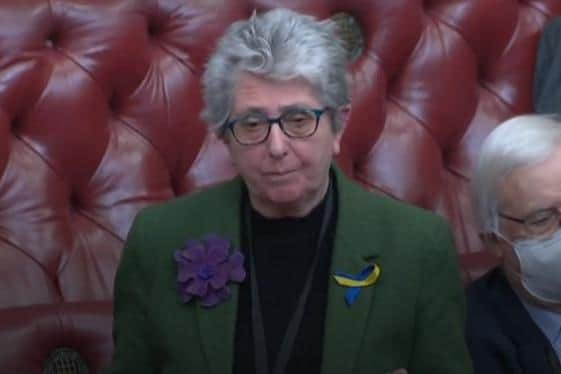Peer pleads for Government action over 'scandalous' costs of prepayment meters for poorest
Baroness Pinnock, a former Kirklees Council leader, said the Government should intervene over the current system where people with prepayment meters in their homes pay much more per unit of energy than other households.
The Liberal Democrat told a House of Lords debate on the cost of living: “My Lords, here is a simple action the Government can take that will help the poorest households, many of which are forced on to prepayment meters for their energy bills.
Advertisement
Hide AdAdvertisement
Hide Ad“The cost they have to pay per unit of energy is hugely more than the average household has to pay.


“First, does the Minister agree that it is scandalous that we are asking the poor to pay the most? Secondly, will she force change on to the energy companies so that the poorest pay the least—the cheapest rate possible?”
Department of Work and Pensions Minister Baroness Stedman-Scott said she would raise the issue with the department, having heard similar recent concerns from another peer. But she said she could make no promises about changes occuring.
“In our debate yesterday Lord Shipley raised the issue of the higher energy costs due to the method of payment that many people face. I have agreed to take that back to the department, and I will do so. Again, I can make no promises. As for forcing change, I will have a good go.”
Advertisement
Hide AdAdvertisement
Hide AdEarlier this month, Richard Lane, director of external affairs at StepChange Debt Charity, highlighted prepayment meters as an example of the so-called 'poverty premium' - in which people on low incomes or living in deprived areas end up paying more for services than average.
He said: “The poverty premium overlaps massively with problem debt. People experiencing debt are more likely to have to pay more for goods and services, such as being put onto prepayment meters for energy, and only being able to access high-cost credit, rather than affordable ways of borrowing for essential items.”